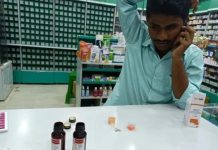BY Awa B. Bah
As part of its 70th anniversary celebrations, Medical Research Council the Gambia (MRCG) on Monday 27th November 2017, commenced a three-day international symposium at a local hotel in Senegambia, under the theme “Bringing together world leaders in global health”.
MRC Gambia has been in existence in the country for the past 70 years. The Unit is one of two which were established in sub- Saharan Africa by the Medical Research Council UK, and it is the Research Council’s single largest investment in medical research in a low or middle-income country.
MRC Gambia represents a unique concentration of scientific expertise and high-quality research platforms in the West African region.
The most highly anticipated and talked about event of drawing participants from around the world, was to reflect on past successes and future challenges, with a specific focus on local, regional and global health.
In his welcome address, the Director of MRCG Professor Umberto D’Alessandro, asserted that for the last 70 years, MRC Gambia has produced excellent world class research.
This he said, has trained several generations of young scientist some of whom are not younger anymore in their international fields of research.
MRC Gambia, he said, will continue to maintain her place in scientific health research and capacity development.
Over the last 70 years, Professor Umberto D’Alessandro noted that the world around them have changed and is steadily increasing from communication to investigation; that despite its achievements, the unit continues to face challenges such as adapting to the world’s changing environmental conditions. He revealed that the unit has introduced an electronically magical recording system allowing efficient data collection and management of resources, that their laboratory services have been accredited with. The unit he said allowed them to carry out quality management research fields and their key performing indicators are all extremely positive.
In collaboration with their Morocco and Senegalese counterparts, he revealed that they have launched the West African Global Health Alliance that will allow them to answer new research results.
He commended the Government of the Gambia, Ministry of Health and Social Welfare for the excellent collaboration. The two-day forum, he said, will provide the opportunity for strengthening collaboration with institutions in similar research, in contributing towards enriching the local health population.
Professor Peter Piot of London School of Hygiene and Tropical Medicine Chaired the plenary presentation and highlighted key issues in global health by factoring old and new challenges and possible opportunities.


















